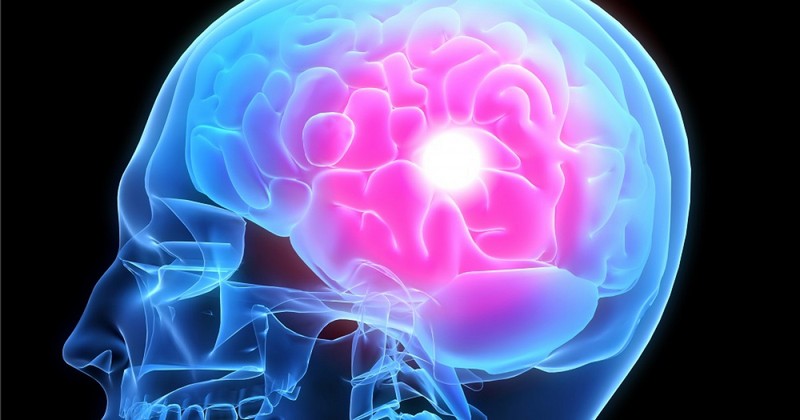Can we delay the aging of our brain?

Through our habits we can make our brain better preserved over the years.
Is there a way to make our brain age more slowly? We have all asked ourselves this question at some time, and we know more and more cases of people suffering from some type of dementia, the best known of which is Alzheimer's disease.
It is clear that as we get older, our brain ages just like the rest of our body. In fact, neuroscientists believe that our brains begin to age from the age of 30 onwards.. But don't worry, we can also influence this process with our lifestyle.
How to delay brain aging
Neuroscientist Francisco Mora offers us 12 healthy guidelines that we can implement in our lives, regardless of our age, to keep our brains active and delay possible diseases such as Alzheimer's disease.
1. Eat less
Eating more than we need increases the brain's oxidative stress.In addition, reducing the amount of food boosts the production of new neurons in the hippocampus (the region in charge of memory and learning) and strengthens neuronal connections.
2. Exercise regularly
Physical activity increases the brain's plasticity, that is, the capacity to regenerate neurons and change the functioning of this set of organs. change the functioning of this set of organs of the nervous system..
3. Do mental exercise daily
The challenges and new learning are a good option. For example, learning a new languageThe objective is not to be able to speak it perfectly, but the effort and satisfaction that learning it generates, increasing also our self-esteem.
4. Travel and discover new places
You don't have to travel the world; getting to know places close to where we live is just as enriching. Being in unfamiliar environments requires activating our brains to adapt to new stimuli to adapt to new stimuli, in addition to experiencing pleasurable emotions. Routine is harmful to our brain.
5. Take care of your social relationships
Living in company and keeping our relationships with others alive increases our feeling of being supported by someone, we adapt better to changes and keeps us away from feelings of loneliness.
6. Adapt to change
We live in constant change, adapting to new situations and the experiences we live is fundamental, otherwise we increase our level of stress and discomfort..
7. Avoid chronic stress
Continuous stress releases glucocorticoid hormones that directly affect the brain by destroying neurons in the hippocampus, affecting our memory and learning ability..
8. Do not smoke
This habit can produce small cerebral infarcts, in addition the nicotine produces atrophy and neuronal death being able to reduce our cognitive capacities.
9. Sleep well
Enjoying a restful sleep is necessary so that our brain can erase unnecessary information, reinforce the knowledge we have learned throughout the day and repair tissues that may have been damaged.
10. Avoid emotional blackout
Being motivated, excited about new projects and looking for things that excite us is part of our life engine.
11. Be grateful
Practicing gratitude with others strengthens our social bonds, helps to create new bonds and to forget old emotional burdens that cause us discomfort. that cause us discomfort.
12. Enjoy the little things
Regardless of our age, we should put on our magnifying glasses and be aware of the things that we experience be aware of the things that we experience every day and that make us feel good; a conversation with a friendA conversation with a friend, a cup of coffee in the morning, the feeling of a job well done, singing in the shower? all these things that are within our reach provide us with great pleasurable sensations.
Tell us if you already practice some of these habits in your life or if you've decided to start changing any of them!
(Updated at Apr 14 / 2024)